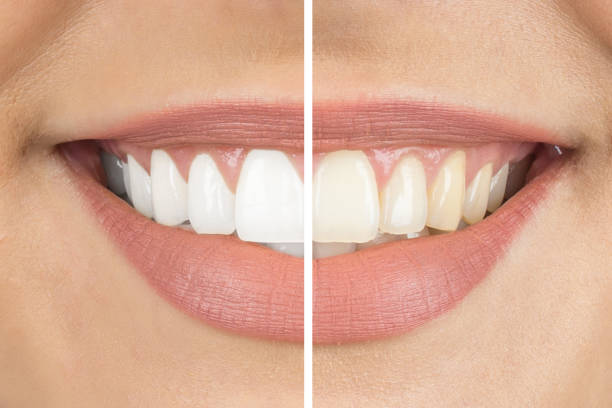Teeth whitening is a solution to address teeth discoloration and brighten smiles. Before starting any teeth whitening treatment, there are key aspects to contemplate. Asking the right questions can help make sure that the process is safe, effective, and suited to your goals. Here are four fundamental questions to guide you before beginning your teeth-whitening journey:
1. Is Whitening Safe?
Safety is a primary concern for anyone contemplating teeth whitening. Whitening performed under the supervision of a dentist is generally safe. Dentists use professional-grade bleaching agents and follow protocols that minimize risks such as gum irritation or enamel damage. Over-the-counter whitening products may lead to complications if not used properly, making professional oversight helpful.
Not everyone is an ideal candidate for teeth whitening. For instance, individuals with dental restorations, such as crowns or veneers, may not see the same results as those with natural teeth. A dentist can evaluate your oral health, assess whether teeth whitening is appropriate, and make sure your gums and enamel are healthy enough for treatment.
2. How Long Do Results Last?
The longevity of whitening results varies based on lifestyle habits and maintenance. Typically, professional teeth-whitening treatments can last for a long time. Factors like diet and oral hygiene play a significant role in determining how long your smile stays bright.
Certain beverages, such as coffee, tea, and red wine, and habits like smoking, can lead to faster discoloration. To make your results last longer, avoiding these stain-causing substances and adhering to a consistent oral care routine is key. Your dentist might also recommend follow-up treatments or whitening touch-ups for sustained results over time.
3. What Are the Side Effects?
Though generally safe, teeth whitening can have potential side effects. Temporary tooth sensitivity and gum irritation are often reported. Sensitivity typically arises from exposure to bleaching agents and is usually short-term, lasting only a few days after the treatment.
Desensitizing toothpaste or fluoride treatments can help mitigate sensitivity. Gum irritation, on the other hand, usually occurs if whitening agents come into contact with soft tissues. Professional treatments are designed to avoid such occurrences by carefully applying products to your teeth without affecting your gums. Professional consultation is fundamental in minimizing these risks. A dentist can customize the procedure to suit your needs while protecting your gums and teeth throughout the treatment.
4. How Do You Maintain Results?
Maintaining the results of whitening is key to prolonging your brightened smile. Start with regular brushing and flossing using non-abrasive toothpaste. Abrasive products can wear down enamel and undo whitening effects over time. Using a whitening toothpaste may also slightly enhance your maintenance routine.
Alongside proper oral hygiene, make sure to limit foods and beverages known for causing stains. When consuming these items, use a straw to minimize direct contact with your teeth. Dentists may recommend fluoride treatments or professional cleanings to further protect against discoloration. Attending routine dental check-ups allows a professional to monitor your oral health and address potential staining before it becomes noticeable. Periodic at-home whitening kits or follow-up treatments may also help preserve the initial results of professional whitening.
Schedule Your Teeth Whitening Appointment Today
Whitening offers a practical way to improve the appearance of your smile, but it is key to address these four questions before beginning treatment. Professional guidance enables safety, effective results, and long-lasting satisfaction. Schedule your teeth-whitening appointment today for professional whitening and expert guidance.

